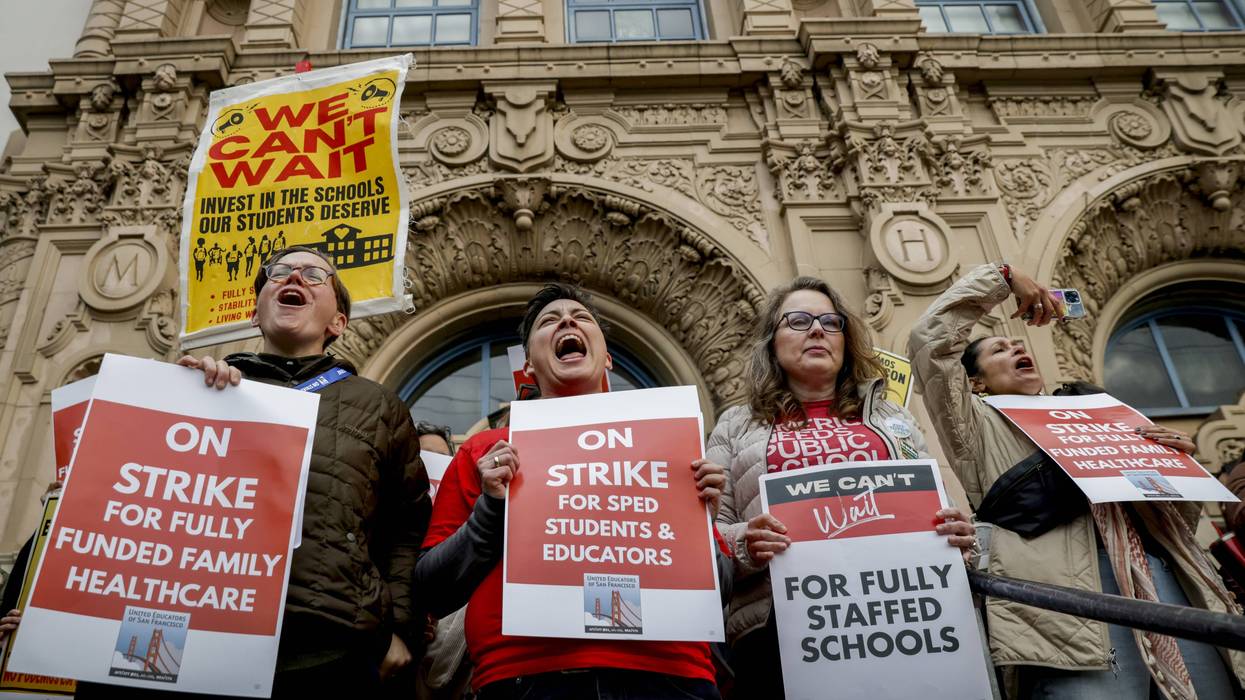However, shortly after Trump returned to office last year, his Department of Homeland Security (DHS) revoked the rule barring agents from arresting undocumented immigrants in or around "sensitive" locations like schools, places of worship, and hospitals, as part of his pursuit of mass deportations.
"When enforcement moves into school zones, the harm isn't theoretical," Hoidal stressed. "Attendance drops, instruction stops, and school communities lose the stability public education depends on. Districts across the country are watching how courts draw the line around spaces dedicated to children."
Over the past year, members of DHS and its agencies—including Customs and Border Protection (CBP) and Immigration and Customs Enforcement (ICE)—have flooded various communities, including in Minnesota. The districts in this case serve students in Fridley, a suburb of the Twin Cities, and Duluth, about 150 miles northeast of Minneapolis and Saint Paul.
"The removal of long-standing protections around schools has had immediate and real consequences for our learning community," said John Magas, superintendent of Duluth Public Schools. "We've seen increased anxiety among students, disruptions to attendance, and families questioning whether school remains a safe and predictable place for their children. Schools function best when families trust that education can happen without fear, and that stability has been undermined."
His counterpart in Fridley, Brenda Lewis, similarly said that "as superintendent, my responsibility is the safety, dignity, and education of every child entrusted to our schools. When immigration enforcement activity occurs near schools, it undermines trust and creates fear that directly interferes with students' ability to learn and feel safe. Schools depend on stability, and that stability has been disrupted."
As Common Dreams reported earlier this week, Lewis has recently spoken at a press conference and to media outlets about the flood of federal agents—and it's come at a cost. The superintendent said she was tailed by agents multiple times while driving to and from the district office, and three of the six school board members have spotted ICE vehicles outside of their homes.
"It is my responsibility to ensure that our students and staff and families are safe, and if that means [agents are] going to target me instead of them, then that's what we need to do, and then they can leave our families alone," Lewis said. "But at the end of the day, are they trying to intimidate me to stop? Yes. Will I stop? No."
In addition to the two districts, Education Minnesota, a labor union of more than 84,000 state educators, is part of the suit against DHS, CBP, ICE, and agency leaders. The group's president, Monica Byron, declared that "students can't learn, and educators can't teach, when there are armed, masked federal agents stationed within view of classroom windows, sometimes for days on end."
"ICE and Border Patrol need to stay away from our schools so students can go there safely each day to learn without fear," she continued, "and so that our members can focus on teaching instead of constantly reacting to the shocking and unconstitutional actions of federal agents."
Last February, a federal judge in Maryland blocked the Trump administration from conducting immigration enforcement actions at Baptist, Quaker, and Sikh places of worship that sued over the repeal of protections for sensitive locations. The new suit asks the court to throw out the 2025 policy and restore protections to all such places.
The legal group Democracy Forward is involved in both cases and several others challenging Trump policies. The organization's president and CEO, Skye Perryman, said Wednesday that "the trauma being inflicted on children in America by this president is horrific and must end. The Trump-Vance administration's decision to abandon long-standing protections for schools has injected fear into classrooms, driven families into hiding, and thrown entire school communities into chaos."
"This is unlawful, reckless, and legally and morally indefensible," Perryman added. "We are in court because children should never have to look over their shoulders at school or worry that their loved ones could be taken away at the schoolhouse gate, and because the government cannot undermine decades of settled policy without regard for students, educators, or the law."
The suit was filed as Tom Homan, Trump's "border czar" and one of the named defendants, announced that 700 immigration agents are departing from Minnesota, which will leave around 2,000 there. The move comes amid incredible pressure on the administration to end Operation Metro Surge. Protests in the state, and in solidarity around the country, have ramped up since agents fatally shot legal observers Renee Good and Alex Pretti in Minneapolis.
The deadly operation in Minnesota has also impacted federal spending decisions in Congress. On Tuesday, lawmakers passed and Trump signed a bill to end a short-term government shutdown, but the measure funds DHS for less than two weeks. However, even if future funding for the department isn't resolved in that time, ICE can continue its operations thanks to an extra $75 billion for the agency that Republicans put in last year's budget package.




